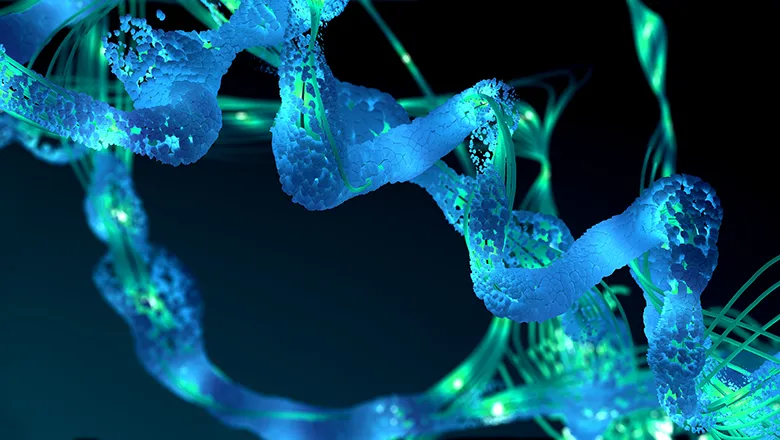
Professor Andre Cobb
Professor of Organic Chemistry
- Academic Planning Lead
- Organic and Biological Chemistry Section Lead
- Advanced Topics in Synthesis Module Lead
Research interests
- Chemistry
Biography
Professor Andre Cobb is a Professor of Organic Chemistry in the Department of Chemistry, King's College London. Andre obtained his first degree in Chemistry from King’s College London before undertaking doctoral work on asymmetric organozinc chemistry at UCL with Professor Charles Marson. After this he moved to the University of Cambridge to conduct postdoctoral research firstly with Professor Florian Hollfelder on the development of synthetic enzymes and then with Professor Steven V Ley CBE FRS where he developed asymmetric organocatalytic methodologies. He then went on to his first independent academic position at the University of Reading where his work won him a faculty research prize, as well as a Thieme Chemistry Journals award. He was promoted to Senior Lecturer in 2012, and then moved to the Department of Chemistry - back at his alma mater King’s College London in October 2016. Andre is also an Associate Editor for the Royal Society of Chemistry’s New Journal of Chemistry.
Research Interests
- Asymmetric synthesis
- Organocatalysis
- Foldamer design and synthesis,
- Medicinal chemistry
- Total synthesis
Teaching
- Organic Chemistry 3
- Advanced Topics in Synthesis and Reactivity
- UG Research Methods Literature Review
- MSci Chemistry Frontiers
- MSci Research Project & Dissertation
- MRes Expanding the Frontiers of Chemistry
- MRes Research Project in Interdisciplinary Chemistry
Research profile
For more information on Dr Cobb's research please his Research Portal page.
The Cobb Group
Postgraduate Researchers
The Cobb Group has been involved in the development of asymmetric methodologies towards biologically inspired molecules since 2005. They have pioneered the synthesis of unnatural amino acids, mono and diterpenes (such as the cannabinoids), steroids, alkaloids and nucleoside frameworks – generally all using organocatalytic approaches. They have also applied many of these targets towards purposes such as the design of antivirals, anticonvulsants, lipids, and cardiac medications. In particular, they have used unnatural amino acids within unnatural peptides with highly defined secondary structures (so-called foldamers) that themselves can be applied to catalysis or peptidomimetics (with an example target being an enzyme of SARS-CoV-2). The Cobb Group has also developed a range of bifunctional probes for the detection of protein movement in real time. They also collaborate with many other groups both national and international. The Cobb Group is very well-equipped for synthetic methodology, with a chiral phase HPLC, an automated chromatography unit, ozonizer, cryocooler, and polarimeter in addition to the usual synthetic organic chemistry furnishings (stirrer hotplates, rotavaps etc). Funding has been obtained from EPSRC, BBSRC, MRC, CR-UK, the Leverhulme Trust, the Royal Society and Industry (e.g. Syngenta, GW Pharmaceuticals) amongst others.
Visit the Cobb Group website to find out more.
Research

P83: Development of peptide-antibiotic conjugate therapeutics for improved targeting and killing of bacteria
Development of peptide-antibiotic conjugate therapeutics for improved targeting and killing of bacteria
Project status: Completed

Microbes in Health & Disease
The Microbes in Health & Diseases Research Interest Group aims to foster collaboration across departments and faculties at KCL to explore the multifaceted role microbes play in health and disease.
News
Chemist awarded £1.2 million grant to design a new kind of biological catalyst
Professor Andre Cobb’s EPSRC Standard Research Grant will unlock a new level of control over chemical reactions in industry and medicine.

King's Chemist to lead national network aimed at building artificial molecules
Professor André Cobb has received a £0.75 million EPSRC Network Grant to exploit this technology for health, materials and catalysis applications

King's chemists develop revolutionary new approach to designing catalysts for chemical reactions
This breakthrough will enable scientists to more carefully control and guide reactions.

Research

P83: Development of peptide-antibiotic conjugate therapeutics for improved targeting and killing of bacteria
Development of peptide-antibiotic conjugate therapeutics for improved targeting and killing of bacteria
Project status: Completed

Microbes in Health & Disease
The Microbes in Health & Diseases Research Interest Group aims to foster collaboration across departments and faculties at KCL to explore the multifaceted role microbes play in health and disease.
News
Chemist awarded £1.2 million grant to design a new kind of biological catalyst
Professor Andre Cobb’s EPSRC Standard Research Grant will unlock a new level of control over chemical reactions in industry and medicine.

King's Chemist to lead national network aimed at building artificial molecules
Professor André Cobb has received a £0.75 million EPSRC Network Grant to exploit this technology for health, materials and catalysis applications

King's chemists develop revolutionary new approach to designing catalysts for chemical reactions
This breakthrough will enable scientists to more carefully control and guide reactions.

